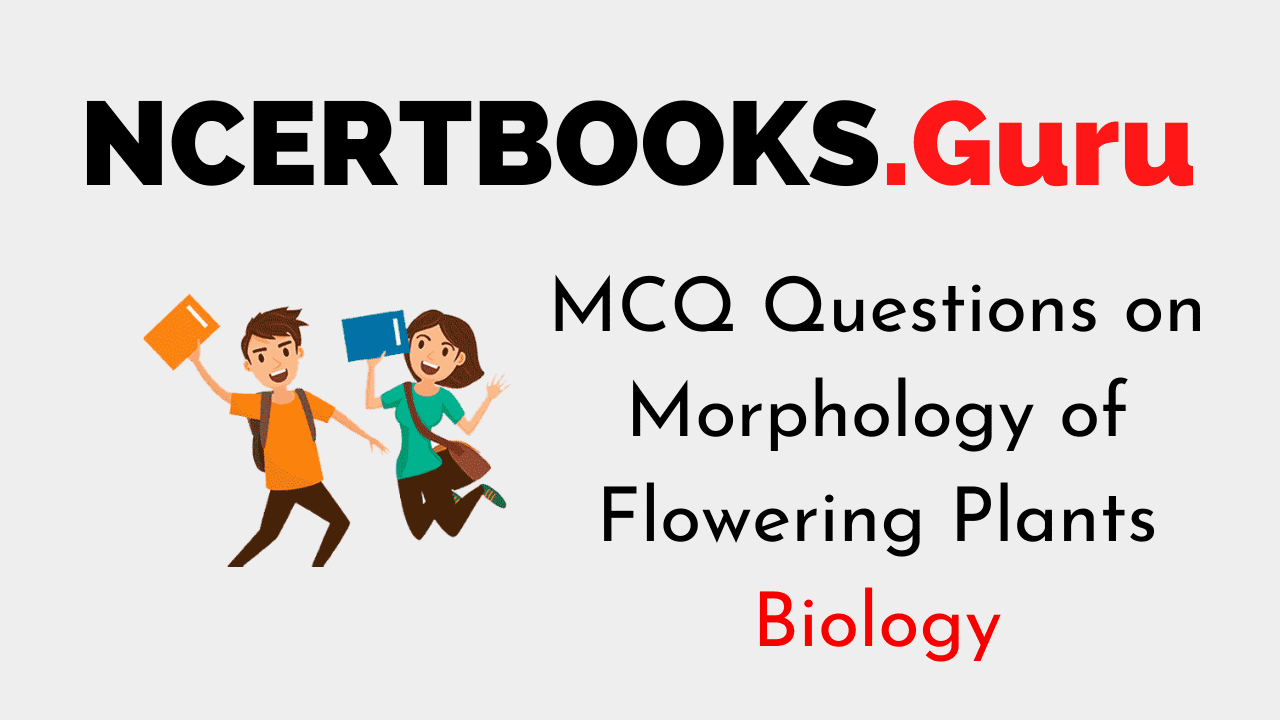MCQ Questions on Morphology of Flowering Plants
1. The morphological nature of the edible part of a coconut is
(a) Cotyledon
(b) Perisperm
(c) Pericarp
(d) Endosperm
Answer
Answer: (d) Endosperm
2. ________ are the non-essential parts of a flower
(a) Androecium and gynoecium
(b) Sepals and carpels
(c) Sepals and petals
(d) Sepals and gynoecium
Answer
Answer: (c) Sepals and petals
3. Four long and two short stamens are found in
(a) Asteraceae
(b) Brassicaceae
(c) Liliaceae
(d) Solanaceae
Answer
Answer: (b) Brassicaceae
4. A fruit developed from a condensed inflorescence is
(a) Composite fruit
(b) Simple fruit
(c) Aggregate fruit
(d) Etaerio
Answer
Answer: (a) Composite fruit
5. Radial symmetry is found in the flowers of
(a) Cassia
(b) Pisum
(c) Trifolium
(d) Brassica
Answer
Answer: (d) Brassica
6. The stem modified into flat, green organs performing the function of leaves
(a) Phyllodes
(b) Cladodes
(c) Phylloclades
(d) Scales
Answer
Answer: (c) Phylloclades
7. Leaves become modified into spines in
(a) Opuntia
(b) Onion
(c) Silk cotton
(d) Pea
Answer
Answer: (a) Opuntia
8. Geocarpic fruits are formed in
(a) Onion
(b) Carrot
(c) Groundnut
(d) Watermelon
Answer
Answer: (c) Groundnut
9. Testa of seed develops from
(a) Hilum
(b) Funicle
(c) Ovary wall
(d) Outer integument
Answer
Answer: (d) Outer integument
10. Replum is found in the ovary of
(a) Brassicaceae
(b) Malvaceae
(c) Liliaceae
(d) Asteraceae
Answer
Answer: (a) Brassicaceae
11. One seeded winged fruit is
(a) Nut
(b) Samara
(c) Cypsela
(d) Achene
Answer
Answer: (b) Samara
12. Veins of the leaves are useful for
(a) Mechanical support
(b) Transport of water and minerals
(c) Transport of organic nutrients
(d) All of the above
Answer
Answer: (d) All of the above
13. Placenta and pericarp are edible portions in
(a) Potato
(b) Banana
(c) Tomato
(d) Apple
Answer
Answer: (c) Tomato
14. _______ is an edible underground stem
(a) Potato
(b) Groundnut
(c) Sweet potato
(d) Carrot
Answer
Answer: (a) Potato
15. Vexillum is found in
(a) Cruciferae
(b) Rosaceae
(c) Solanaceae
(d) Papilionaceae
Answer
Answer: (d) Papilionaceae
